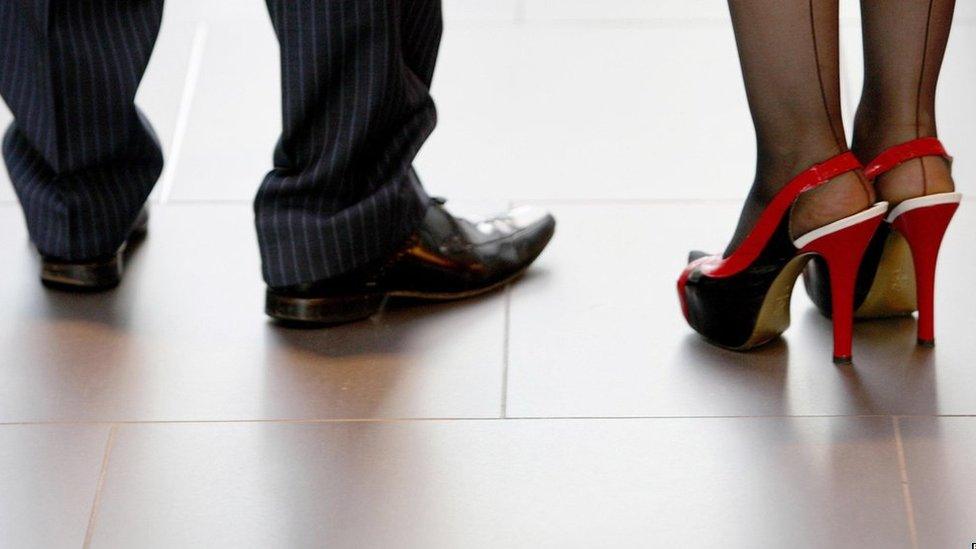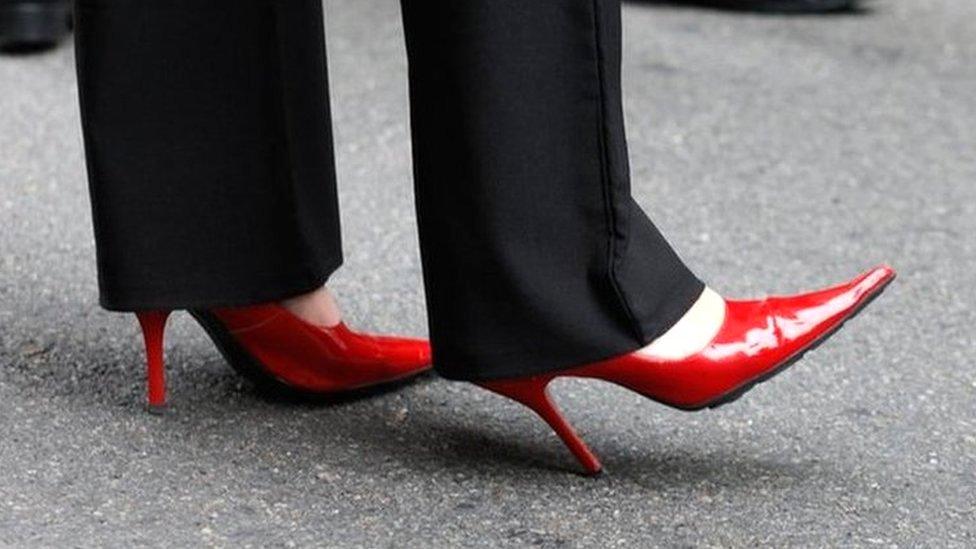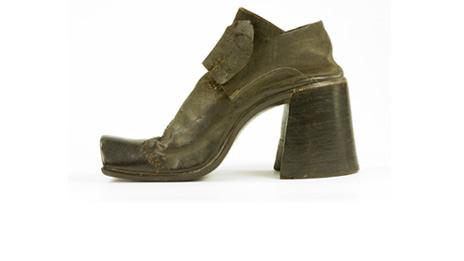High heels row: Firm accused of sexism changes policy
- Published
Nicola Thorp said she was laughed at for asking if male colleagues were also expected to wear heels
A firm that sent home a temp without pay for refusing to wear high heels has changed its policy.
London receptionist Nicola Thorp, 27, says she was told to wear shoes with a "2in to 4in heel" when she arrived at finance company PwC in December.
When she refused and was sent home she set up a petition calling for the law on dress code to be changed.
Outsourcing firm Portico said "with immediate effect all our female colleagues can wear plain flat shoes".
The company initially said Ms Thorp, from Hackney, had signed its "appearance guidelines" but said it would review them.
'Negative backlash'
Ms Thorp said she would have struggled to work a full day in high heels.
Work dress code woes: Your stories
Is it legal to force women to wear high heels at work?
More on this story and other news from London
"I was expected to do a nine-hour shift on my feet escorting clients to meeting rooms. I said 'I just won't be able to do that in heels'," she said.
When she asked if a man would be expected to do the same shift in heels, she said she was laughed at and told to go home without pay.
"I said 'if you can give me a reason as to why wearing flats would impair me to do my job today, then fair enough', but they couldn't," she told BBC Radio London.
Despite fearing what she said could be a "negative backlash", she set up a petition calling for the law to be changed so women cannot be forced to wear high heels to work.

The office in Embankment where Nicola Thorp was told to wear high heels for work by Portico
More than 50,000 people have signed it which triggers the requirement for a government response.
PwC said the dress code issue involving Ms Thorp at its Embankment offices last December was "not a PwC policy".
Later on Wednesday, Portico managing director Simon Pratt said the firm was "committed to being an inclusive and equal opportunities employer" and actively embraced "diversity and inclusion within all our policies".
"We are therefore making it very clear that with immediate effect, all our female colleagues can wear plain flat shoes or plain court shoes as they prefer."
"I think dress codes should reflect society and nowadays women can be smart and formal and wear flat shoes," said Ms Thorp.
"Aside from the debilitating factor, it's the sexism issue. I think companies shouldn't be forcing that on their female employees."
- Published11 May 2016

- Published11 May 2016

- Published11 May 2016

- Published25 January 2013
